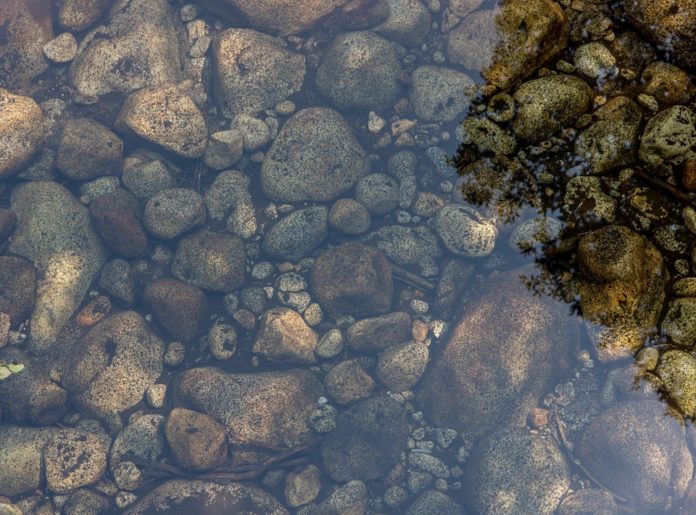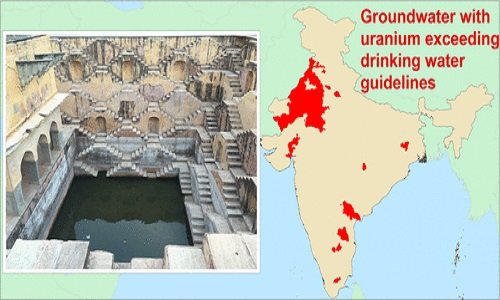India extracts more than a third of worldwide groundwater resources and more than 90% of this is being used for irrigation. Long-term exposure to uranium in drinking water can cause kidney diseases. Even after this warning uranium is not included in the list of contaminants monitored under the Bureau of Indian Standards’ Drinking Water Specifications.
In a new study by the Duke University along with the North Carolina, United States in collaboration with Central Groundwater Board of India, scientists discovered Uranium contamination in groundwater. Raising concern over water supply in India, they found that Uranium is largely present in the groundwater of Rajasthan.
Not only Rajasthan, scientists also discovered uranium contamination in 16 other north-western states including Punjab, Haryana etc.
Finding the cause of Uranium contamination, the combination of different factors, like aquifer rocks containing uranium, oxidizing conditions that leach out uranium from the rocks and make it soluble, and the groundwater chemistry with high bicarbonate in which uranium is attached and thus become mobile, all contribute to the high uranium in groundwater in India.
Avner Vengosh, a professor of geochemistry and water quality at Duke Nicholas School of Environment said, “Uranium levels in 75 out of 226 wells in Rajasthan and five out of 98 wells tested in Gujarat exceeded the WHO provisional health guidelines. According to WHO the safe drinking water standards are 30 micrograms of uranium per liter.”
Researchers sampled water from 324 wells in the states of Rajasthan and Gujarat to analyze the water chemistry. In a subset of samples, they measured the uranium isotope ratios. They also analyzed similar data from 68 previous studies of groundwater geochemistry in Rajasthan, Gujarat and 14 other Indian states.
Vengosh said, “The results of this study strongly suggest there is a need to revise current water-quality monitoring programmes in India and re-evaluate human health risks in areas of high uranium prevalence.”
“Developing effective remediation technologies and preventive management practices should also be a priority.”
Rajat Mishra, principal secretary of PHED Rajasthan said, “The solution could be first monitoring, then avoiding (using other water sources) or treatment (RO desalination), that no such contamination has been found as of yet in the drinking water of the state but they are keeping an eye on the issue and samples have been sent to their lab in Hyderabad and if something comes up they will take action.”
The results of the study are published in the journal Environmental Science and Technology Letters.

